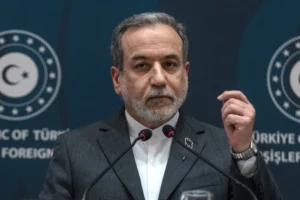MONITORING (SW) – US President Joe Biden has defended his exit of troops strategy for Afghanistan as he delivered his first formal speech at the Congress.
Removing U.S. troops from Afghanistan won’t endanger national security but will demonstrate “American leadership” by halting the cycle of endless armed conflict, President Joe Biden argued in his address to Congress on Wednesday night.
In his first formal speech to lawmakers since becoming president nearly 100 days ago, Biden focused largely on his domestic spending and economic plans, including measures to raise the national minimum wage, make college classes more affordable and expand job training programs, reported the Military Times.
“War in Afghanistan was never meant to be a multi-generational undertaking of nation-building,” he said.
“We went to Afghanistan to get the terrorists who attacked us on Sept. 11. We delivered justice to Osama bin Laden and we degraded the terrorist threat of al-Qaida in Afghanistan. After 20 years of American valor and sacrifice, it’s time to bring our troops home.”
Biden’s decision — which follows a goal from former President Donald Trump to withdraw all troops by May 1, a timeline the White House said was too risky to complete — has received a mixed response on Capitol Hill.
Lawmakers in the audience for Wednesday’s speech applauded references to the heroism of the troops.
Bottom of Form
But in public comments in recent weeks, some members of Biden’s own party have expressed concerns that the Afghan government won’t be able to defend itself, and some conservatives have expressed concern the withdrawal deadline gives insurgents a timeline to cause mischief.
Biden acknowledged the latter in his remarks, promising that even as troops pull out of the country “we will maintain an over-the-horizon capability to suppress future threats to the homeland.”
But he also emphasized that Afghanistan, the site from which the Sept. 11 terrorist attacks on America were planned, no longer represents the critical threat to national security it once did.
“The terrorist threat has evolved beyond Afghanistan since 2001, and we will remain vigilant against threats to the United States, wherever they come from,” he said. “Al-Qaida and ISIS are in Yemen, Syria, Somalia, and other places in Africa and the Middle East and beyond.”
More than 2,400 U.S. troops have died, and more than 20,000 have been wounded in support of the war in Afghanistan, which has cost more than $2 trillion, according to the latest Cost of War study.
Biden also referenced economic and security threats posed by Russia, China and North Korea, all areas where he promised to work more closely with foreign allies to address.
He vowed to “maintain a strong military presence in the Indo-Pacific, just as we do with NATO in Europe: not to start conflict, but to prevent conflict.” He also pledged to stand up against an autocratic China and its ambitions to supplant America as the world’s dominant power.
And he added that “we won’t ignore what our own intelligence agencies have determined — the most lethal terrorist threat to the homeland today is from white supremacist terrorism.”
Defense Department officials have spent the last several months evaluating the issue of extremism in the military ranks, and looking for ways to root out racist and anti-government views.
That push came in partial response to the Jan. 6 attempted insurrection on Capitol Hill, where supporters of Trump — including some veterans — temporarily halted congressional proceedings certifying Biden’s presidential win last November.
Reminders of that attack were still on display throughout the halls of Congress on Wednesday, with hundreds of National Guard troops patrolling a temporary security fence around the Capitol building and increased security throughout the building itself.
The $2 trillion plan includes about $18 billion for VA infrastructure work.
Leo Shane IIIThe address to Congress was also markedly quieter than past affairs because of ongoing coronavirus restrictions. Typically, more than 1,500 lawmakers, staff and guests pack into the House chamber for the event. This year, attendance was limited to about 200 people.
Biden acknowledged that at the start of his speech, saying that infections and death rates have dropped significantly in recent months, but “there is still more work to do to beat this virus” and urged all Americans to work together on that and other challenges facing the country.
“In another era when our democracy was tested, Franklin Roosevelt reminded us that In America: we do our part,” he said. “That’s all I’m asking. That we all do our part. And if we do, then we will meet the central challenge of the age by proving that democracy is durable and strong.






